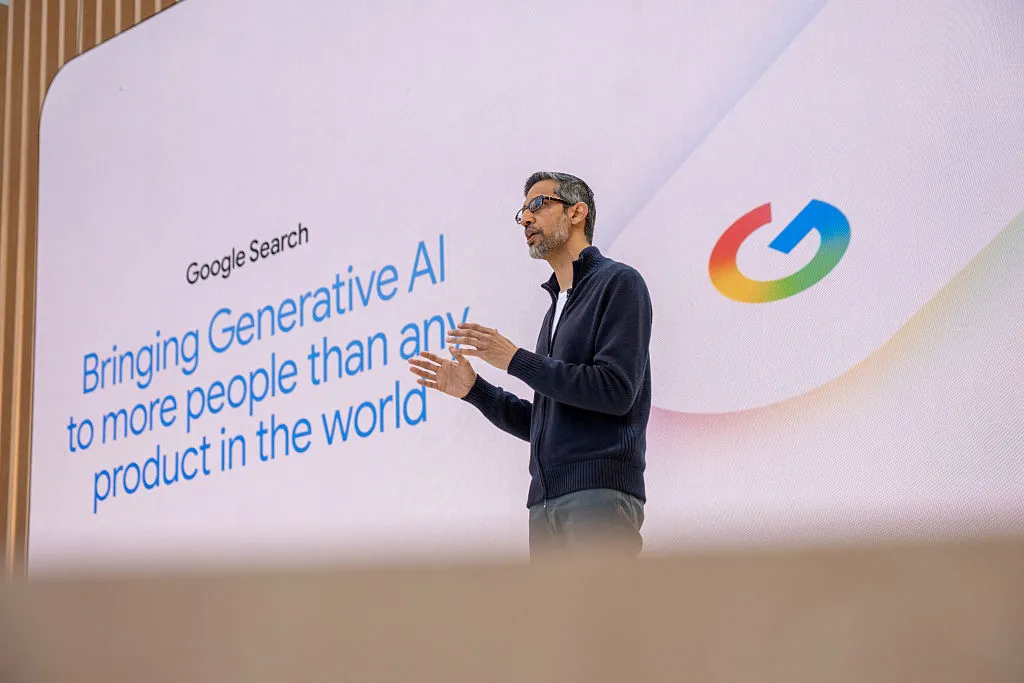Google has long been the gateway to the internet. But with the arrival of generative AI, the digital giant is leveraging its legacy to outpace rivals in ways many are now calling an unfair advantage. At the heart of this discussion is Google’s AI advantage, powered by its Gemini model and widely integrated AI Overviews.
With over 2 billion monthly users across 200 countries, Google’s AI Overviews now stand as the most used generative AI feature globally. But is this dominance a result of innovation or convenience born of monopoly?
The Silent Rollout of AI Overviews
Google didn’t ask users to opt in to AI Overviews. It simply placed them at the top of search results, often replacing traditional web links with AI generated summaries. For many, this shift was barely noticeable. For others especially publishers, bloggers, and even AI competitors it was monumental.
Dr. Meredith Whitaker, former Google AI researcher and current president of the Signal Foundation, recently shared concerns on AI dominance. When a company has control over the infrastructure and the data, it doesn’t just innovate it dictates the terms of competition. That’s the heart of Google’s AI advantage. Whitaker’s point reflects a deeper concern Google isn’t just leading in AI; it’s defining what AI looks like to billions without any clear consent.
The Media Industry’s Struggle
Take for example, the impact on digital news publishers. A recent Reuters Institute report revealed a 23% drop in referral traffic from Google Search to news websites since AI Overviews launched. News content is scraped, summarized, and often displayed without a click through costing publishers both revenue and visibility.
CNN’s digital head, Peter Hibbard, explains. Google now answers the question instead of showing users who created the content. We’re losing out on attention, ad revenue, and trust. This shift illustrates how Google’s AI advantage not only strengthens its dominance but weakens entire ecosystems that once relied on its platform.
From Search Engine to Answer Engine
The transformation from search engine to answer engine is more than marketing lingo it represents a fundamental change in how knowledge is accessed and consumed. By training Gemini on its vast index of web content (including YouTube videos, Gmail interactions, Maps history, and more), Google’s AI isn’t just smart it’s context aware in ways other AI tools can only dream of.
Competitive Landscape
Let’s compare this to OpenAI’s ChatGPT or Microsoft’s Copilot. While impressive in their own right, these models struggle with reach. ChatGPT, for example, still requires users to visit a separate platform and initiate a prompt. Google, by contrast, integrates AI passively into the user’s daily flow. This passive presence gives Google’s AI advantage its edge and its controversy. Most users don’t realize they’re using AI, which means feedback is limited, and informed consent is practically nonexistent.
As a freelance writer and SEO consultant, I’ve spent a decade optimizing content for Google’s algorithms. But since the rollout of AI Overviews, I’ve noticed a drop in both site traffic and user engagement. My articles once ranked on Page 1 are now summarized into AI blurbs that leave no reason for the reader to click. It’s as if I’m ghostwriting for Google’s AI. It feels like being squeezed out of a conversation I helped build.
The Legal and Regulatory Storm Ahead
Regulators are beginning to take notice. The U.S. Department of Justice’s ongoing antitrust lawsuit against Google touches on search dominance, and European regulators are considering rules around AI transparency and data usage. If proven that AI Overviews use content without proper attribution or consent, Google could face serious legal challenges. However, its early integration and dominance might make these battles too late.
The future of AI isn’t just about who builds the smartest model it’s about who controls access to users. And right now, Google’s AI advantage is that it owns the front door. While Google deserves credit for its innovation, it’s hard to ignore the structural advantage it holds. AI Overviews might be useful to the average user, but to creators, competitors, and regulators, they represent a seismic shift in power dynamics. Google’s AI advantage isn’t just technical it’s logistical, strategic, and systemic.

